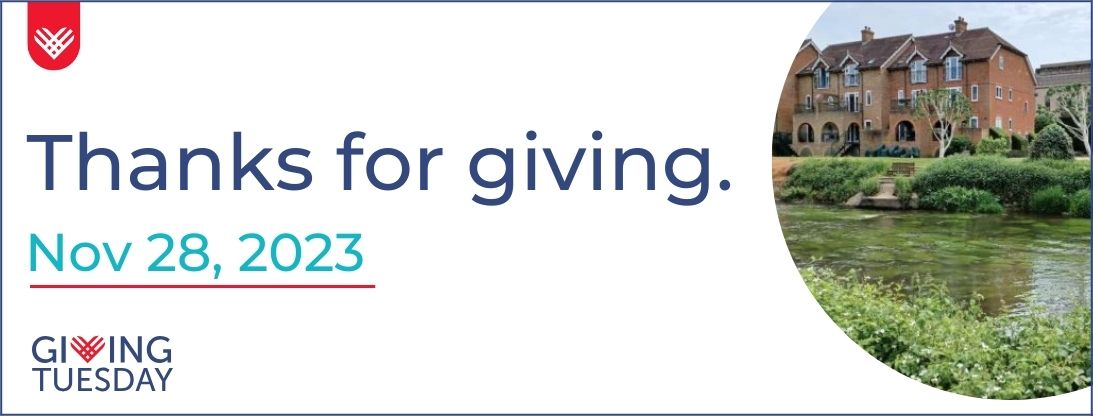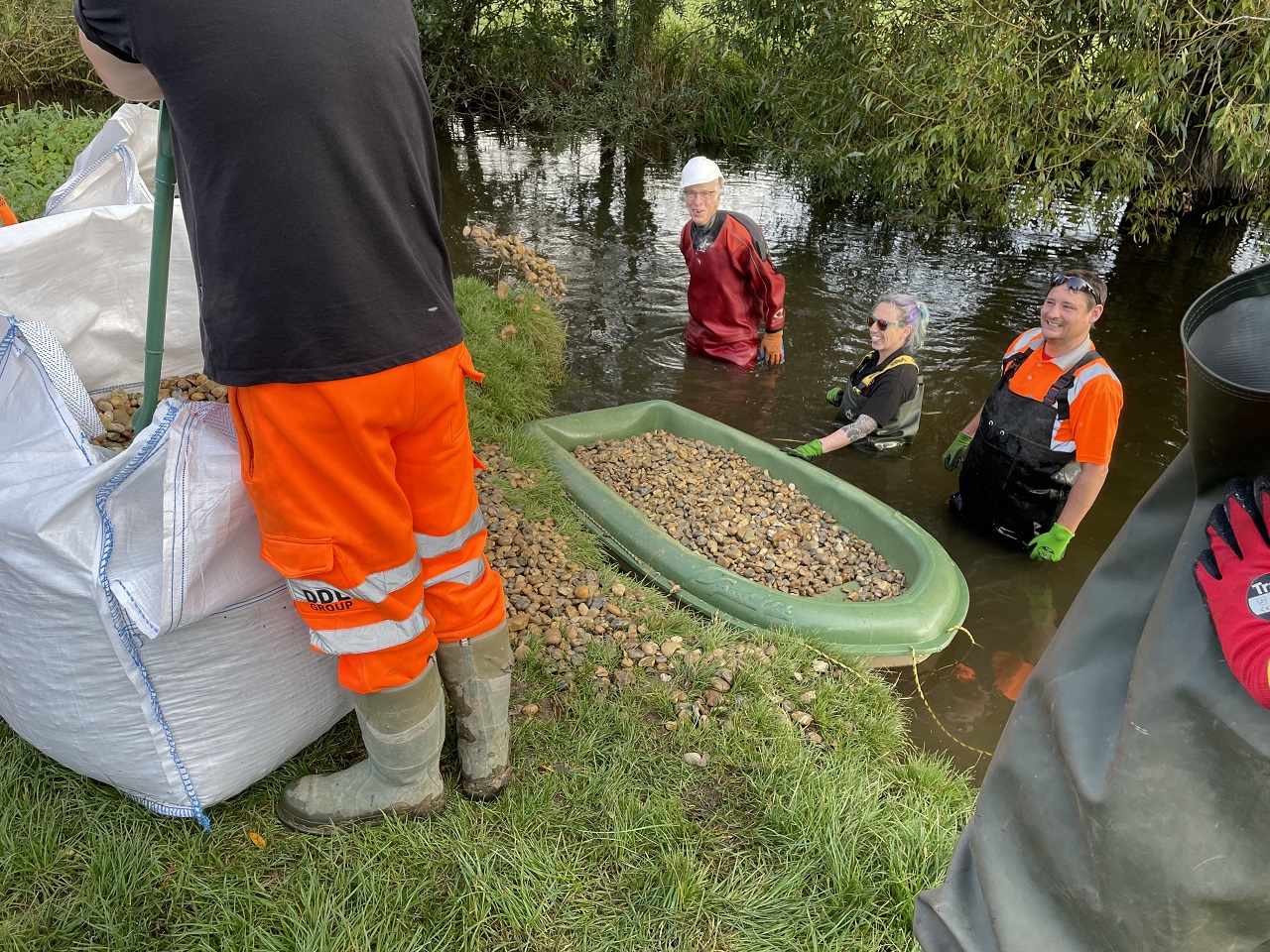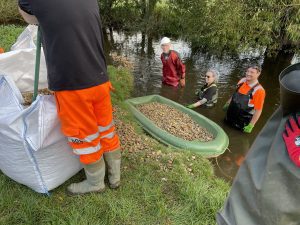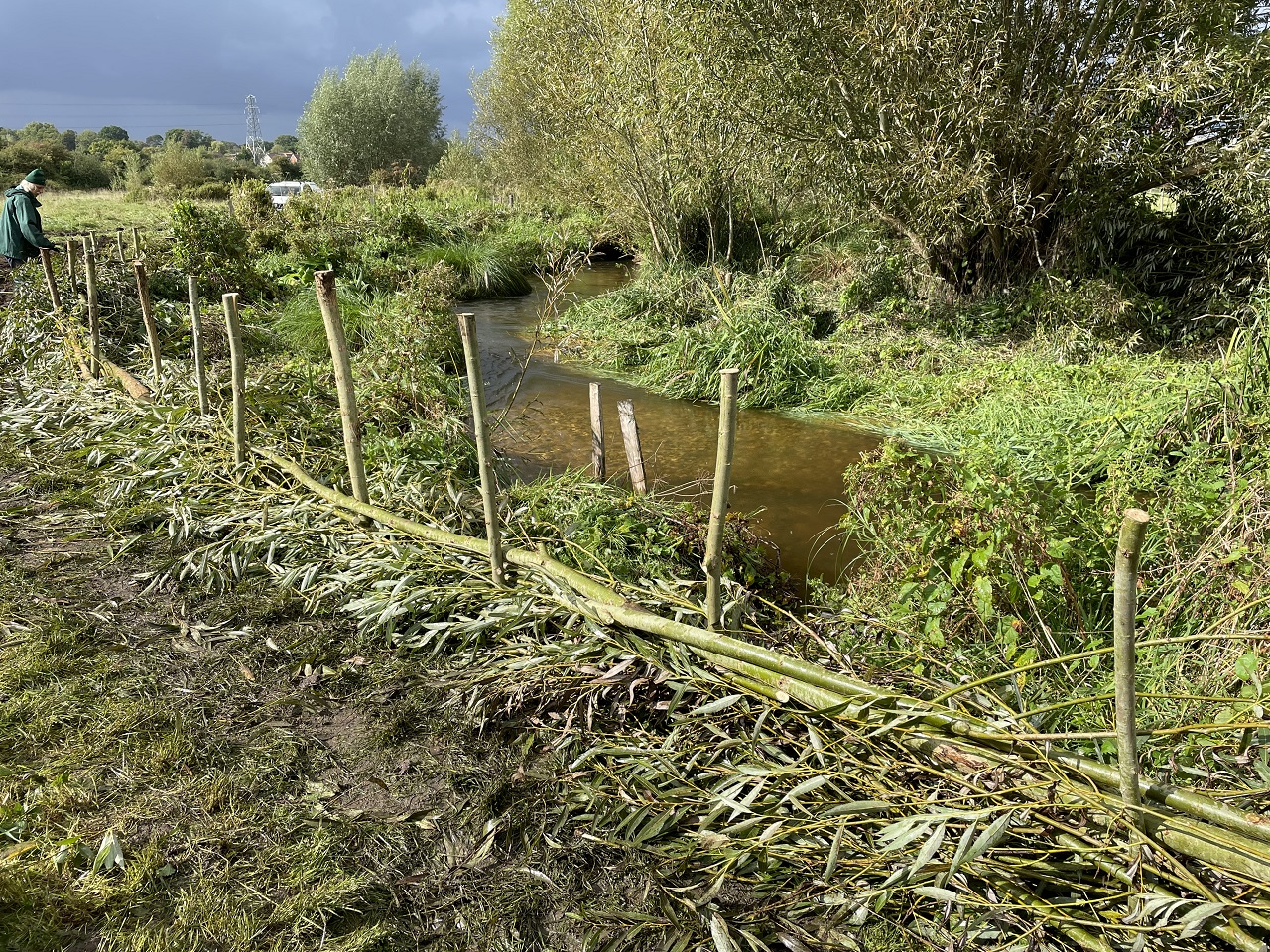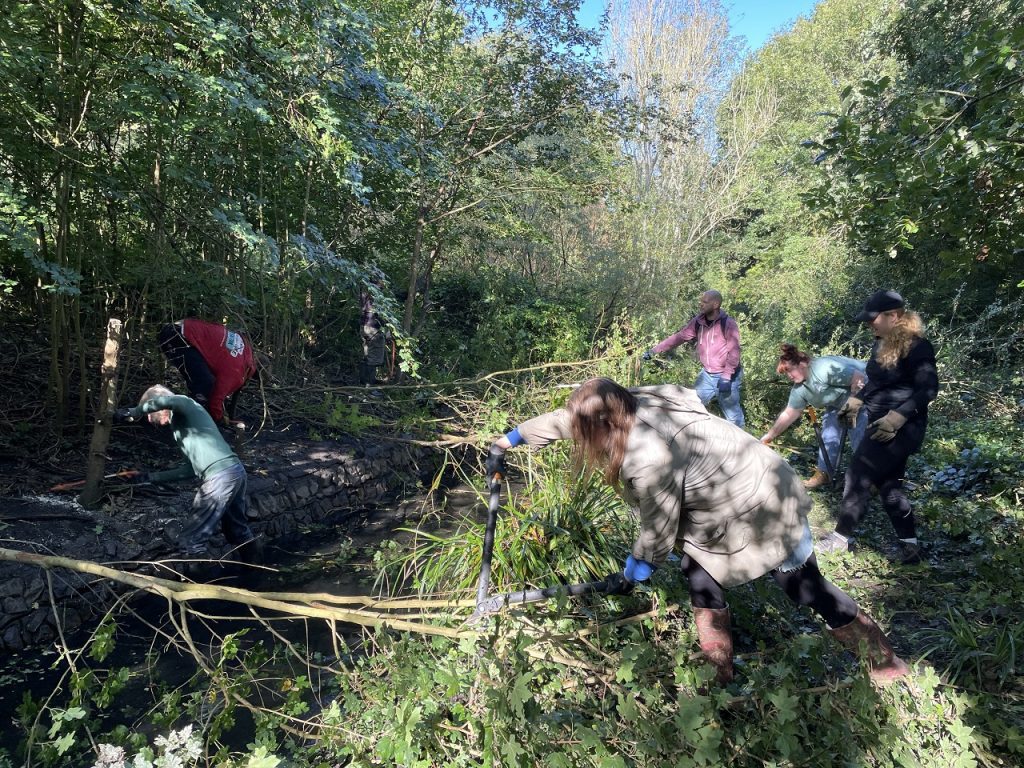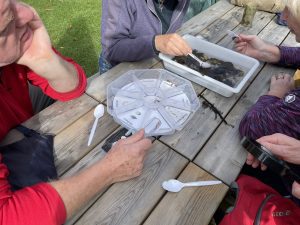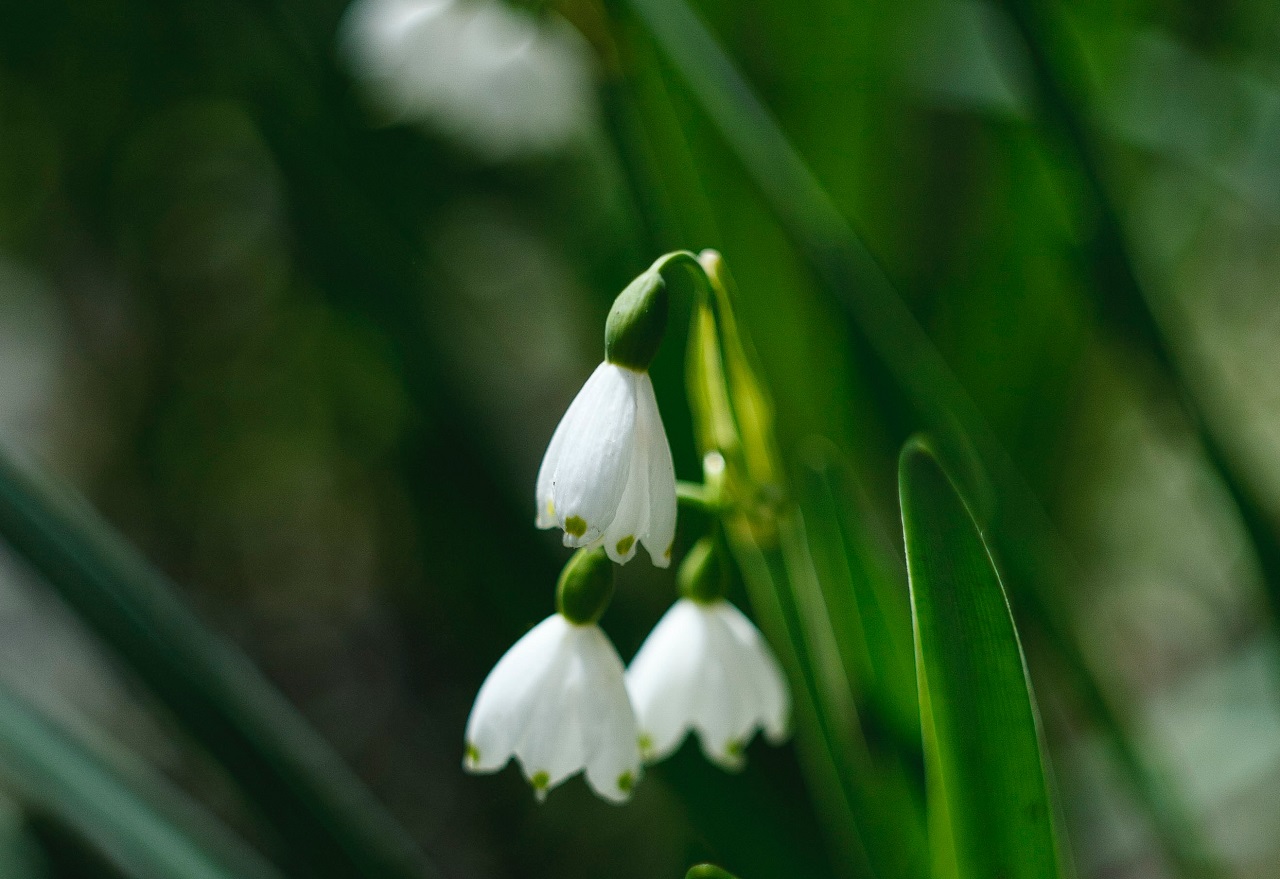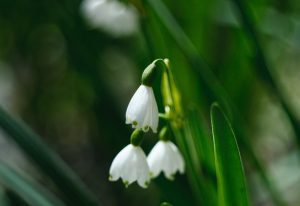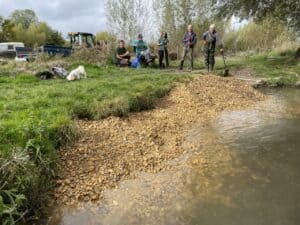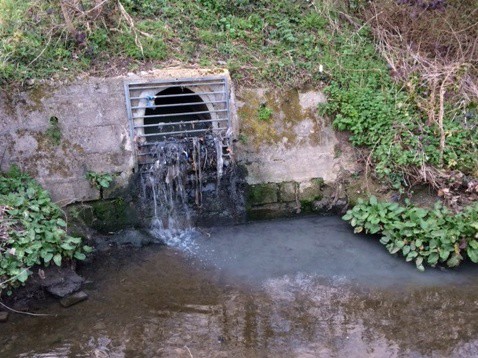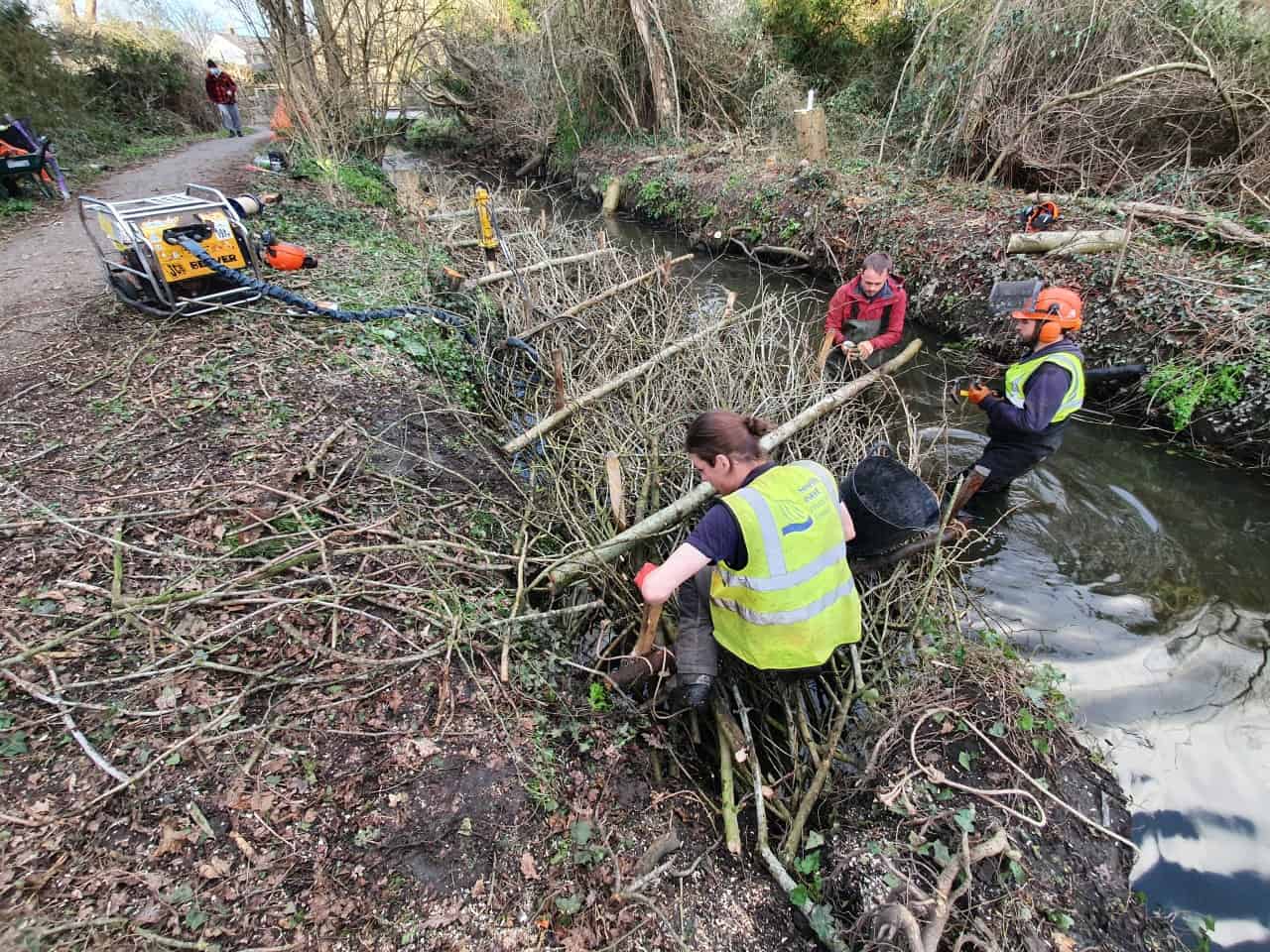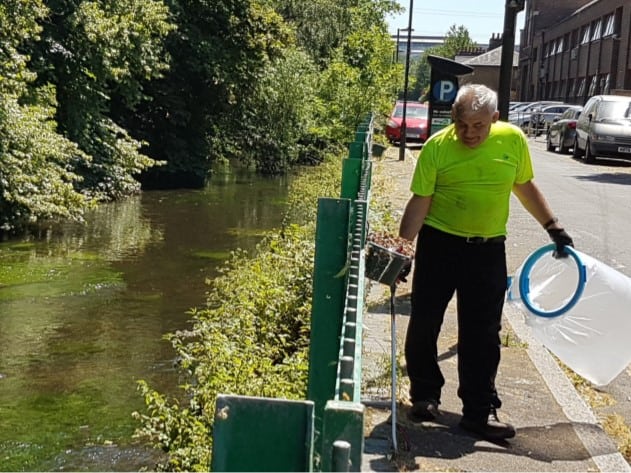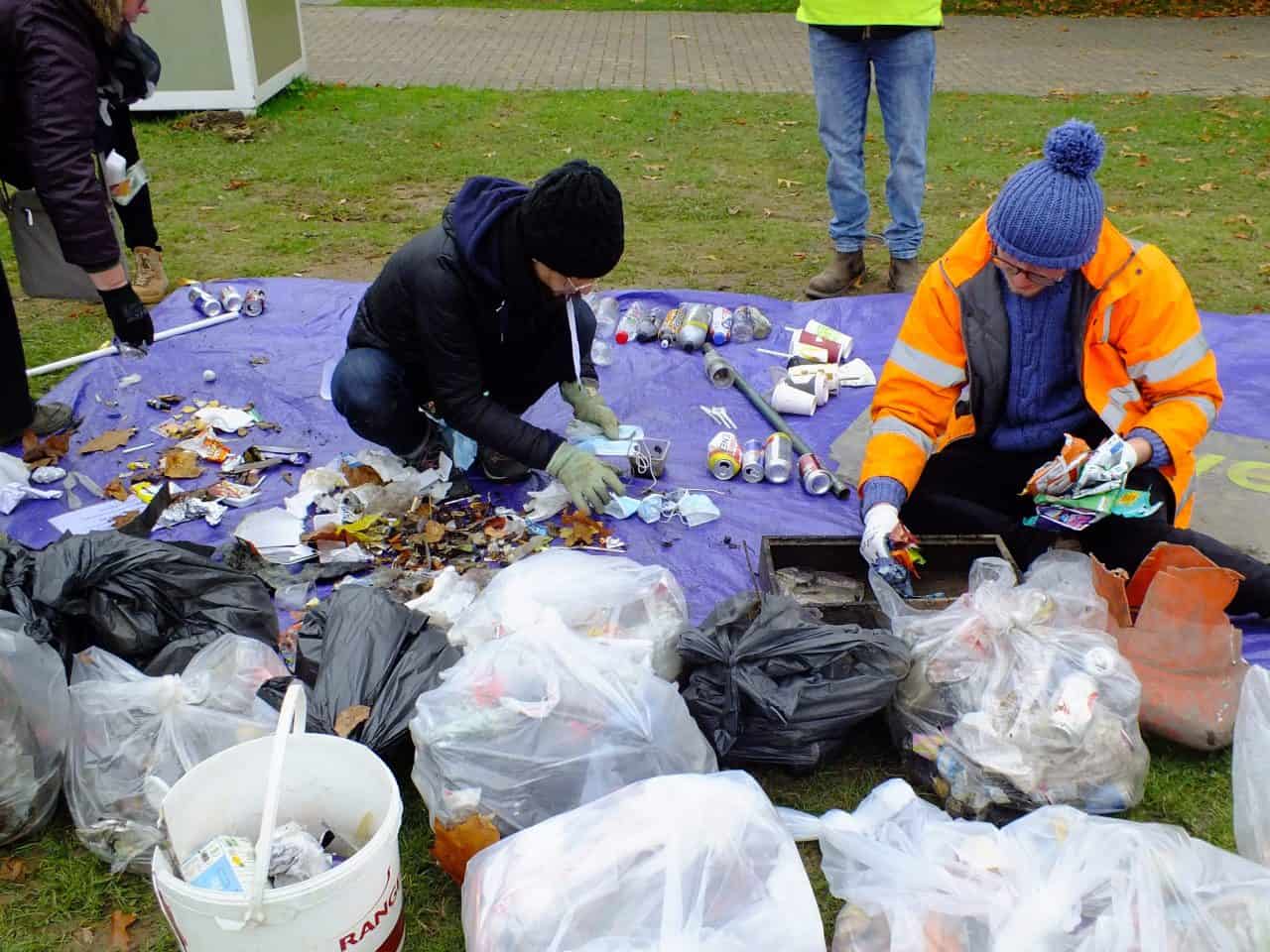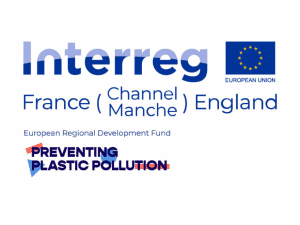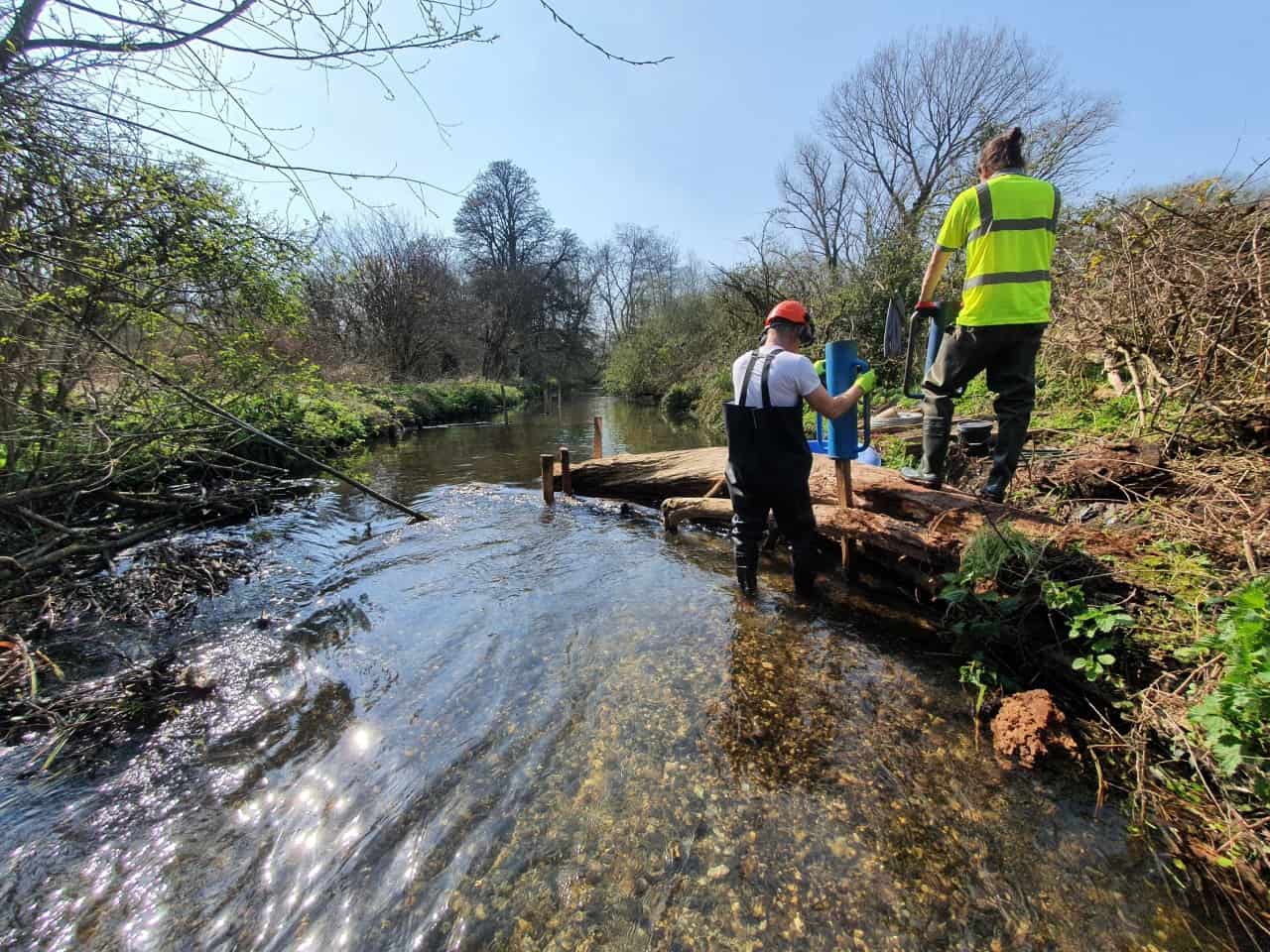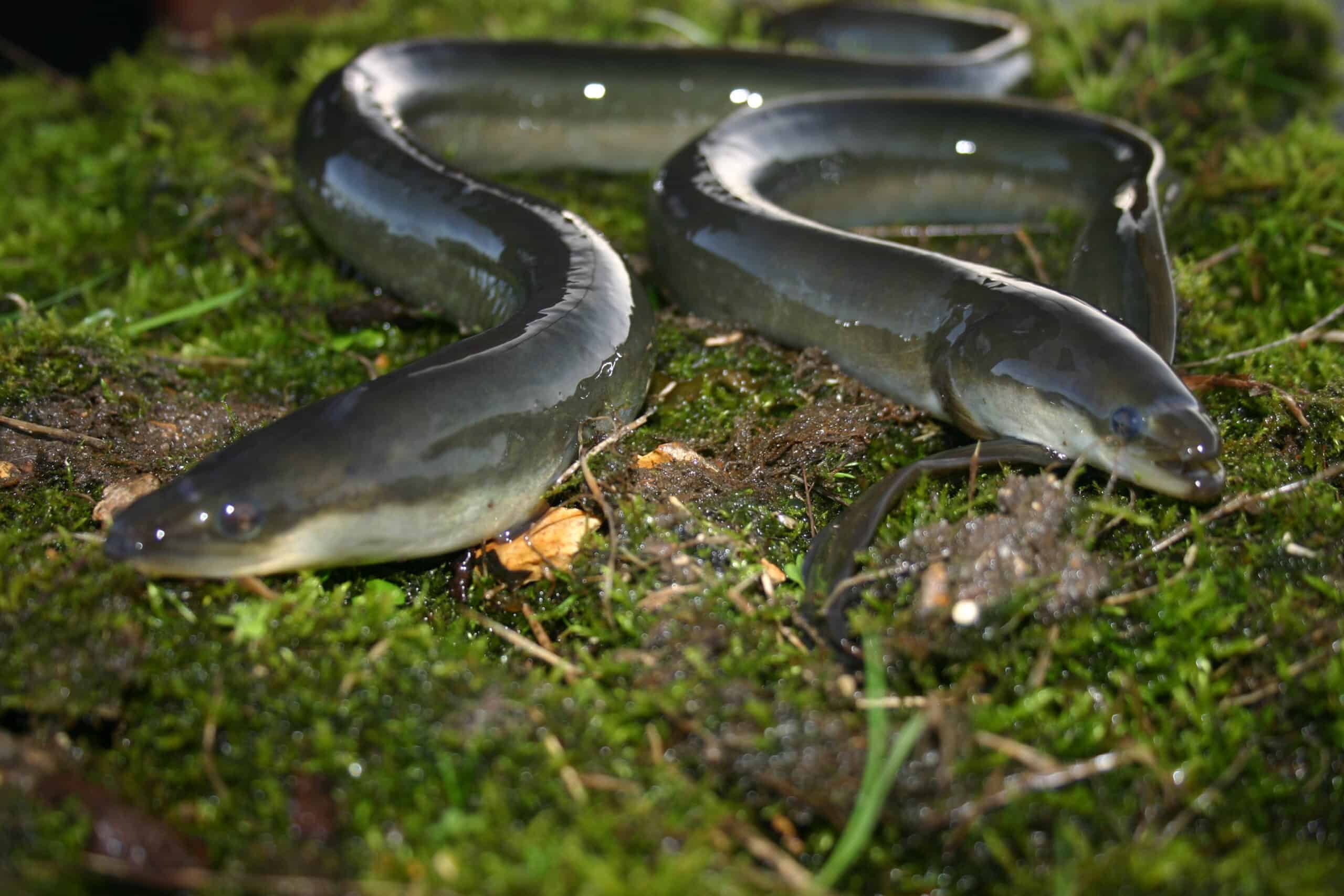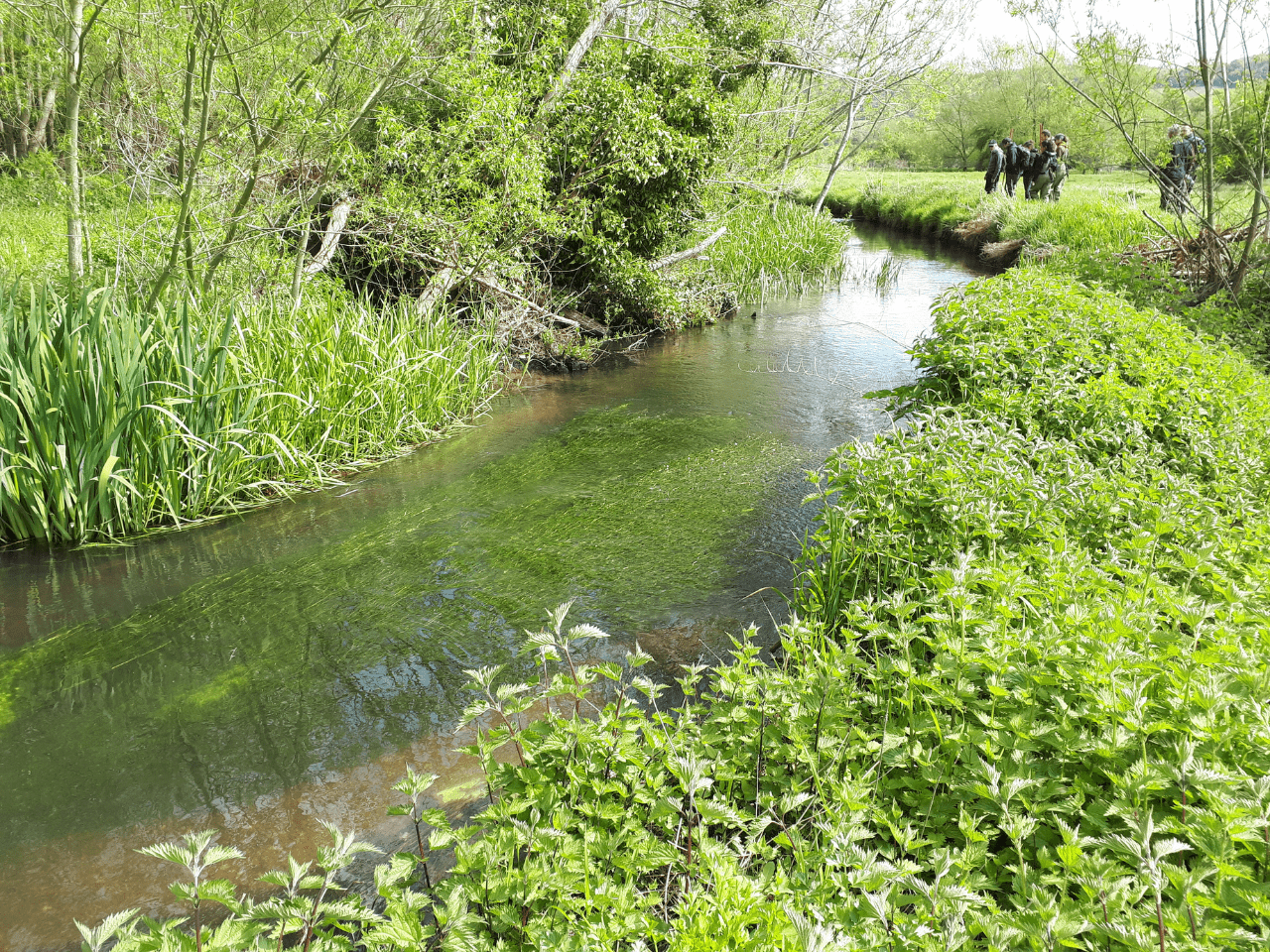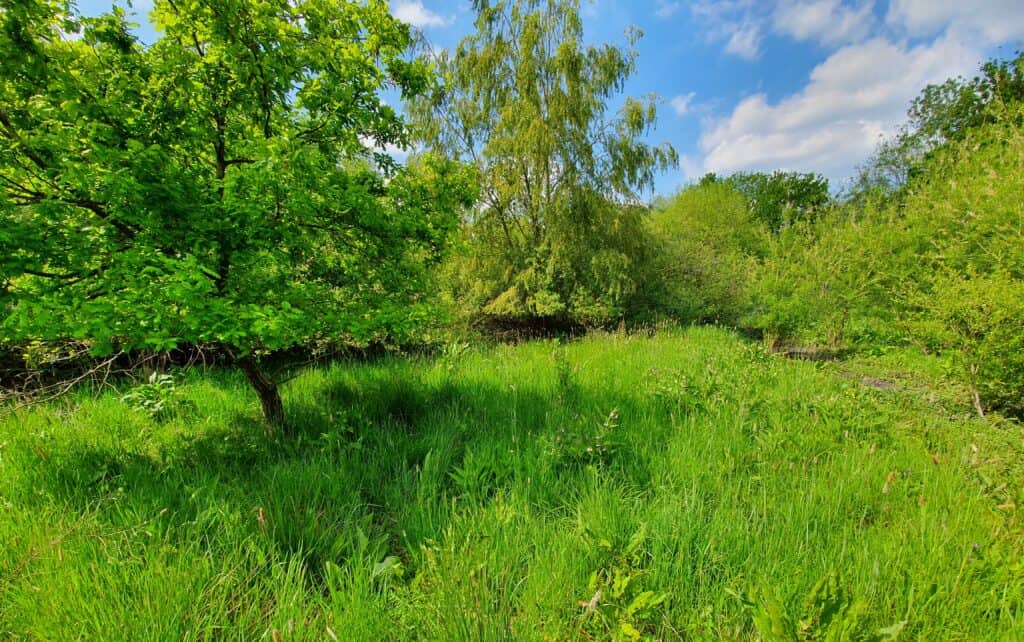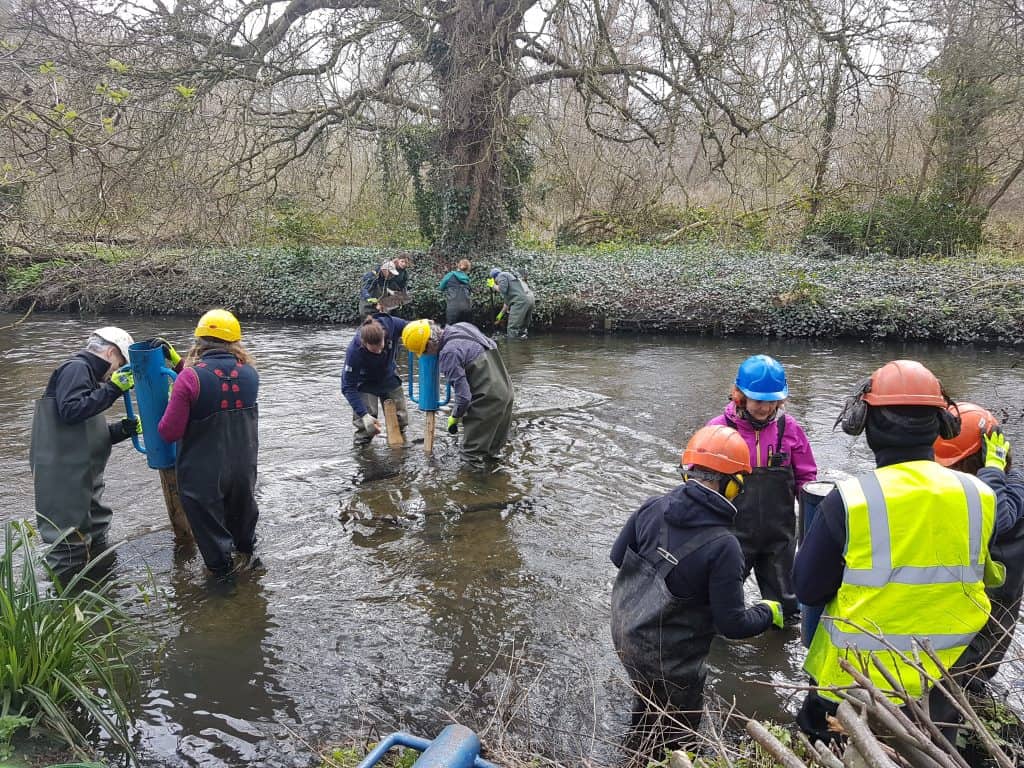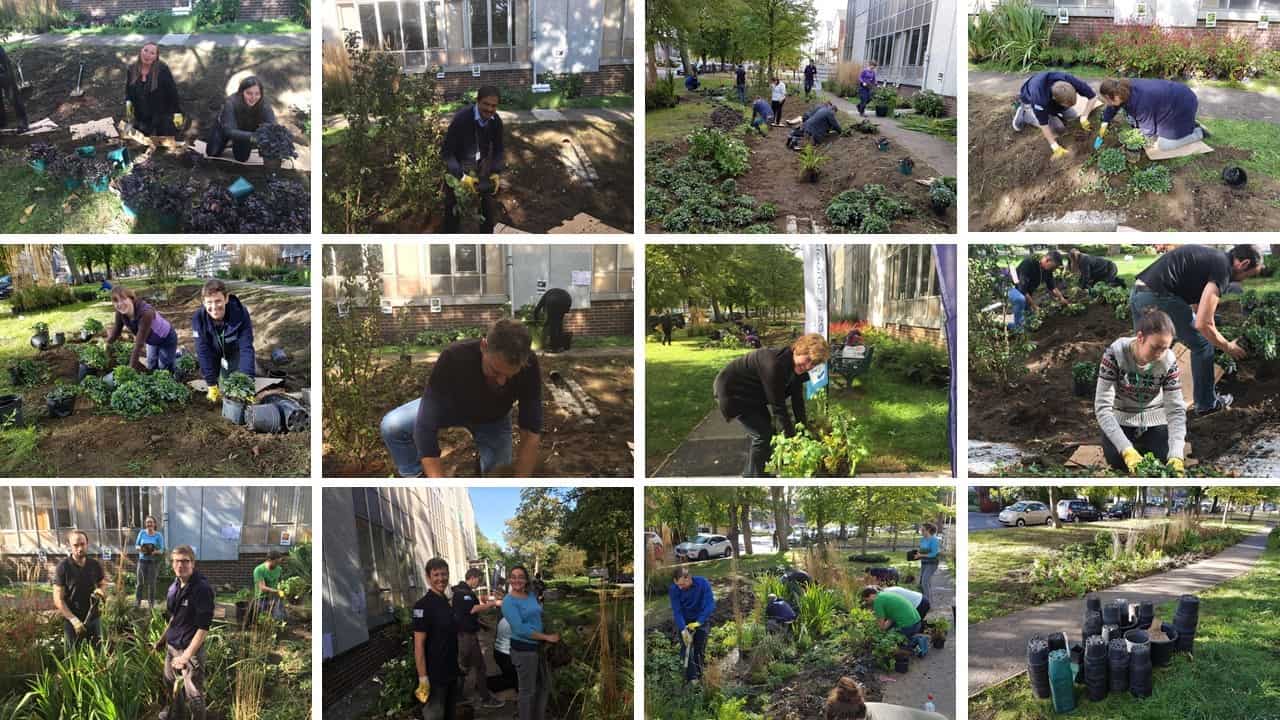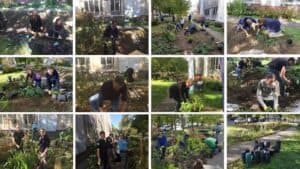Last week, we celebrated London Rivers Week by hosting four local events on our South London rivers, with 90 volunteers joining us to make a positive impact.
What is London Rivers Week?
London Rivers Week is an annual campaign that inspires the public to celebrate all of London’s rivers and the various projects that protect them. This year’s theme, “London is a River City,” focused on health, well-being, and cultural activities. Now in its eighth year, London Rivers Week continues to grow, uniting partners and communities to celebrate the abundance of rivers and waterways in London.
Cleaning up the Wandle

Volunteers from near and far joined us to clean up the River Wandle in Poulter Park. Their fantastic efforts resulted in the removal of a significant amount of rubbish, including tyres, a push bike, pots and pans, a huge sign, a few shoes, and some very gross cushions. A big thank you to Sutton Council for arranging rubbish removal and to Tooting and Mitcham Community Sports Club for letting us use their facilities!
Showcasing restoration on the Beverley Brook
We gave a tour along the Beverley Brook from Richmond Park to Wimbledon Common (and back again!) to learn about the history, ecology and river restoration work of the Beverley Brook. In 2015, we partnered with The Royal Parks to rehabilitate over 600m of the Beverley Brook through Richmond Park and improve the water quality of the river by implementing both engineered and nature-based solutions. This is one of our flagship projects and we love sharing it with the community and local partners – you can read more about it here!

Family Fun At Elmbridge Meadows Community Day
A fun-filled family day was the perfect opportunity for residents to find out how our Enriching Elmbridge Meadows project will re-naturalise 1km of the Hogsmill River. Our information stall gave more information on the river and the project, children enjoyed our craft activities and a small group got into the river in the afternoon to pull up the invasive plant, Himalayan Balsam. Some of our wonderful riverfly volunteers, who carry out monthly monitoring of river invertebrates, kindly gave their time to help collect river dipping samples and people of all ages took delight in seeing what actually lives in the river.
Bashing balsam on the Hogsmill Chalk Stream
We had an amazing turnout for a balsam bash on the Hogsmill with local volunteers joined by the Kingston Ramblers.

Himalayan balsam is a big problem for river banks up and down the country. In addition to competition for pollinators, native plants must also compete for light, nutrients and space, leading to an overall reduction in native biodiversity. Moreover, the fact that the balsam dies back in the winter means that it leaves river banks bare and susceptible to erosion, and the dead leaves and stems can also cause blockages, which can lead to flooding.
What’s more, each plant can produce up to 800 seeds per year – and one plant can propel copious amounts of that seed a distance of up to seven metres!
We’re working with local partners to tackle balsam on the Hogsmill, planning events to eradicate the upstream source first and work downstream. We have also trialed biological control as part of the wider Enriching Elmbridge Meadows Project.
London Rivers Week is organised for the River Partnerships in London (RiPL) via the London Rivers Week steering group. The principal organisations running London Rivers Week are the Environment Agency, Thames21, the South East Rivers Trust, London Wildlife Trust, ZSL, CPRE London, and the Thames Estuary Partnership. In addition to these organisations, many other groups run and contribute to events, walks, talks and seminars to demonstrate the value of rivers.










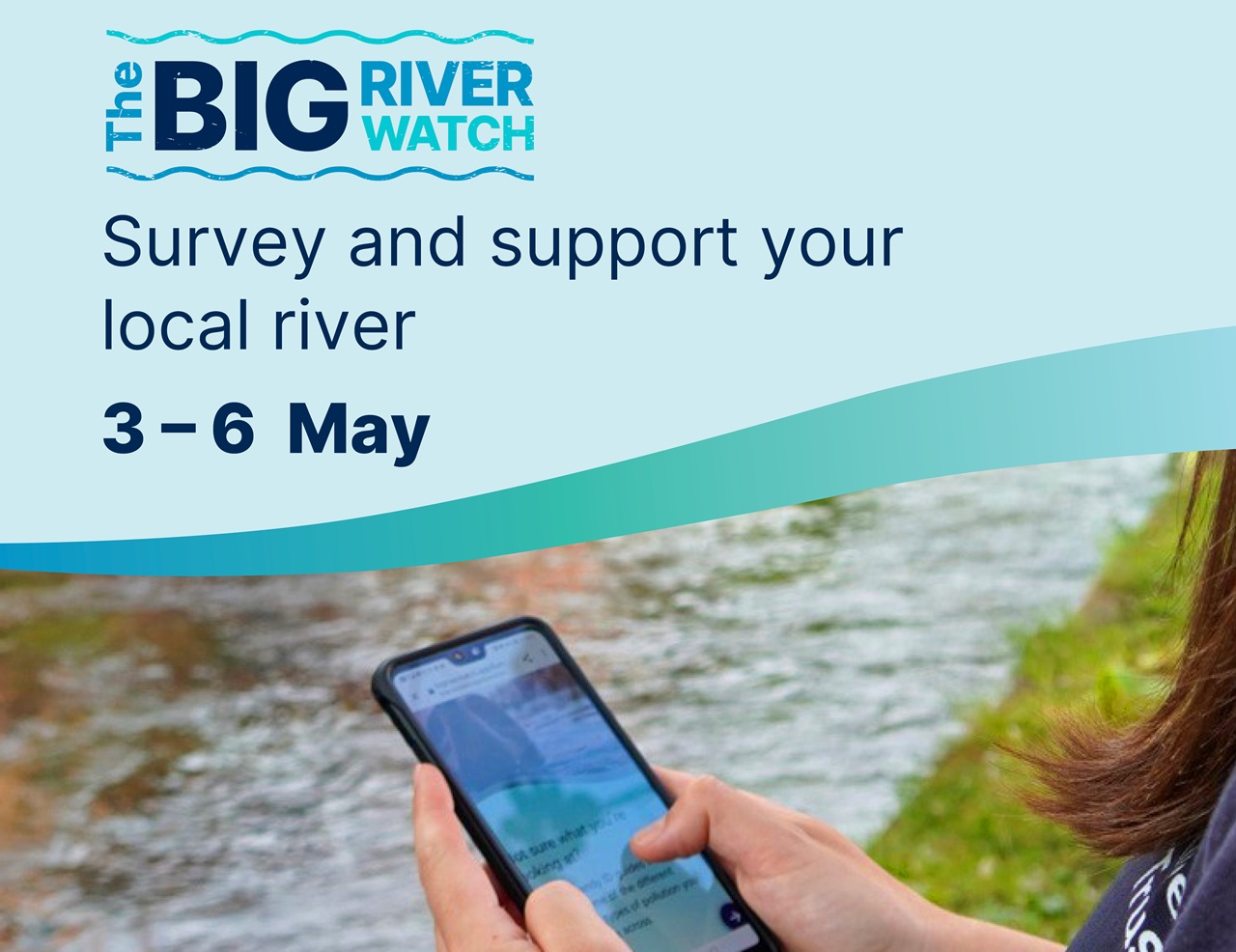
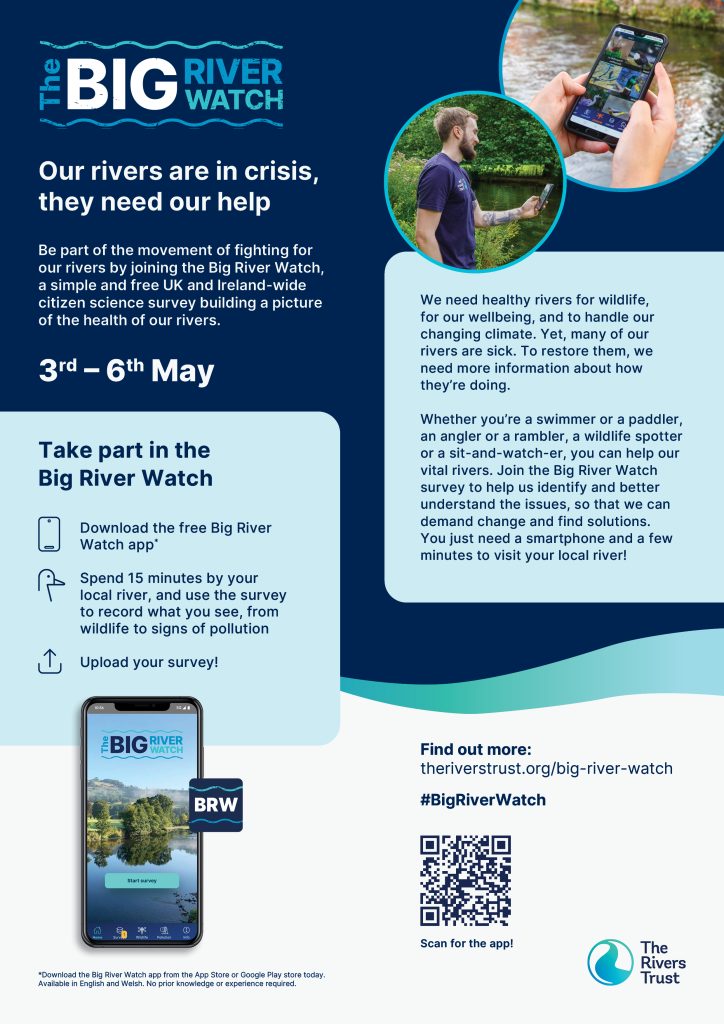
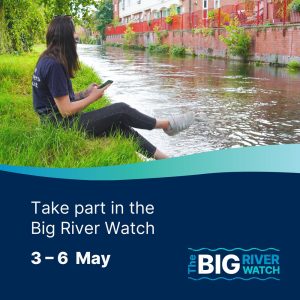
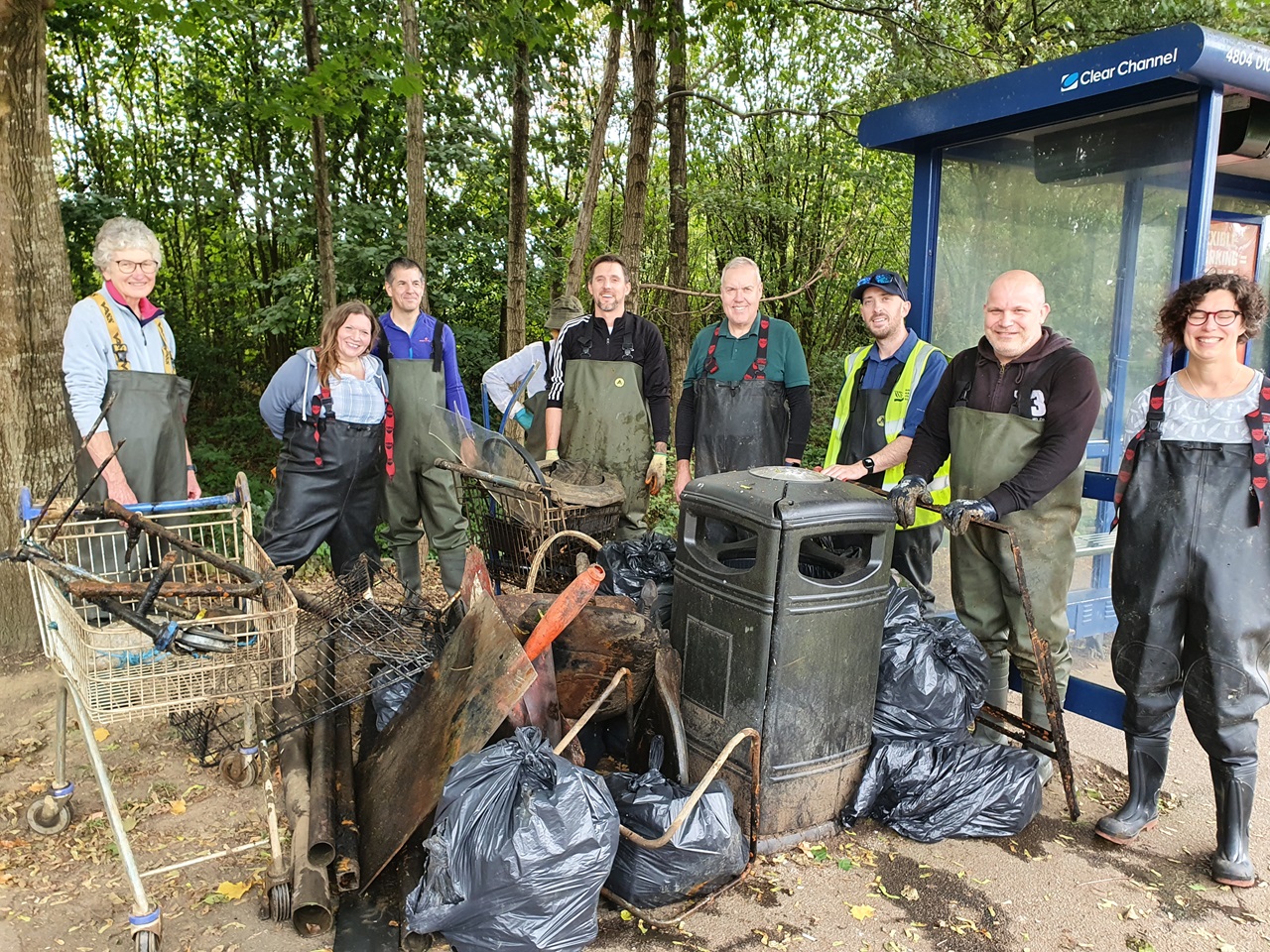
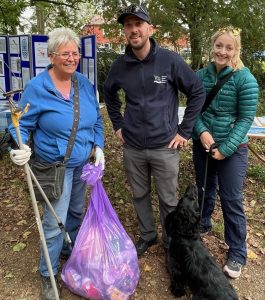
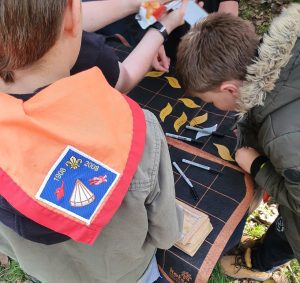
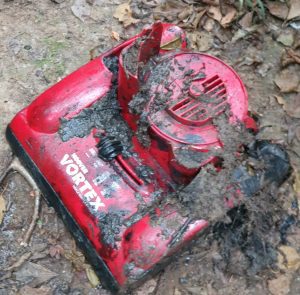
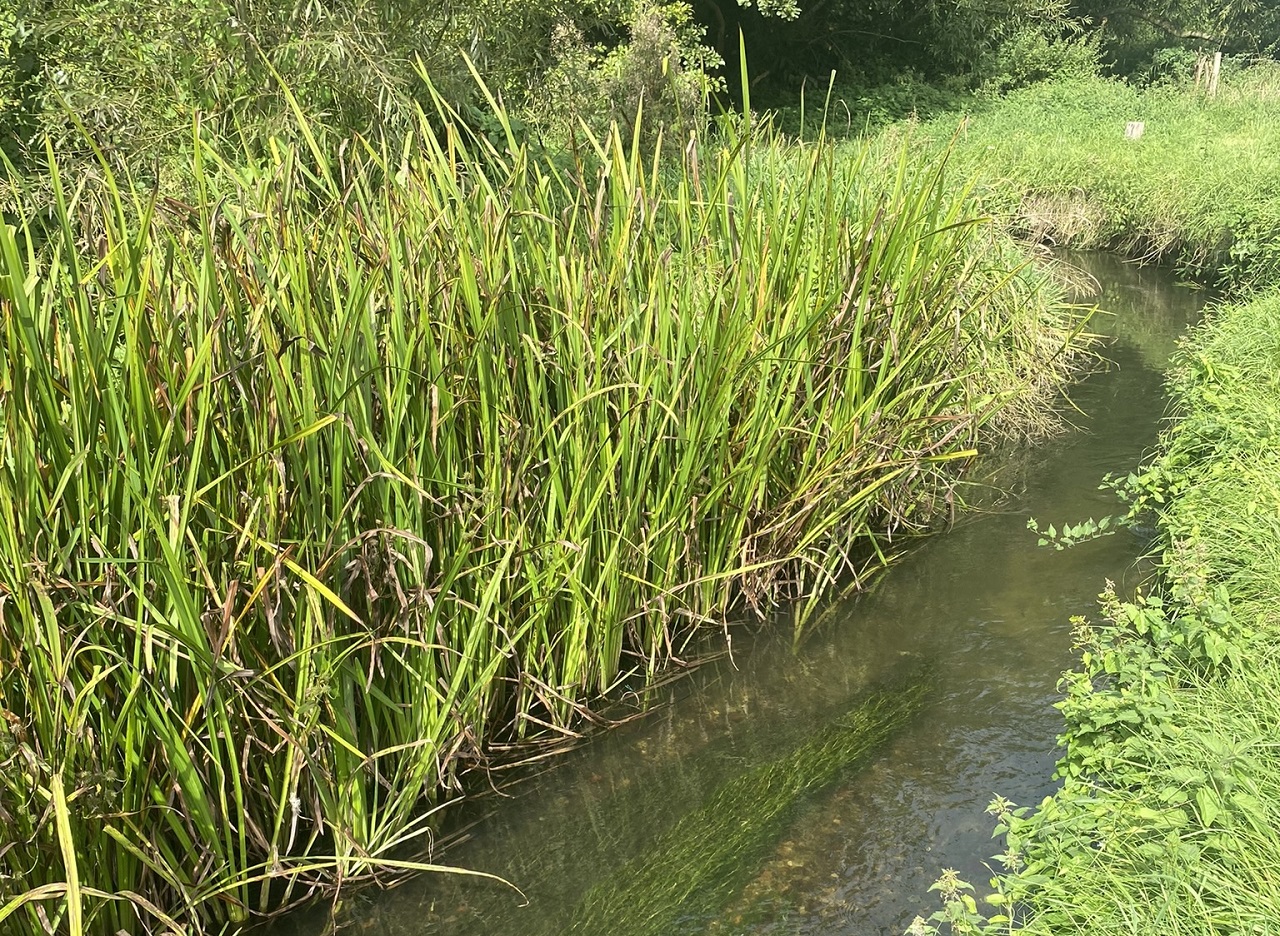
 Much of our drinking water is abstracted from rivers, supplementing what is stored in reservoirs to supply the needs of our homes and businesses.
Much of our drinking water is abstracted from rivers, supplementing what is stored in reservoirs to supply the needs of our homes and businesses.